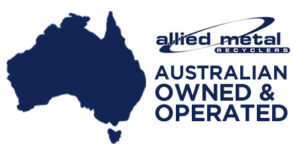Many of us don’t know much about the origin of iron ore unless we work in the mining industry ourselves. However, iron ore is an essential material for constructing buildings and other infrastructure, serving as the backbone for the production of materials such as iron and steel. In Australia, we just so happen to be the world’s largest exporter of iron ore!
As one of the most fundamental contributors towards our economy, it’s worth knowing a little bit about the ins and outs of iron ore:
- The word iron is derived from the Anglo-Saxon word iren. According to WebElements, the word iron is possibly derived from earlier words meaning “holy metal”, since iron was used to make the swords used in the Crusades.
- Humans have used iron for millennia. In fact, iron artefacts have been discovered that predate even the ancient Egyptians! In many cultures, iron was so highly prized that it was seen as a symbol of wealth and power. Weapons were often made from it and given to kings as symbols of their authority.
- Australia is home to some of the world’s richest iron ore deposits, most notably in Western Australia and South Australia. In 2021, Australia produced 900 million tonnes of the stuff!
- Around 98% of all iron ore mined in Australia is exported to countries like Japan, China, India and South Korea – where it is then used in steel production and construction projects.
- Iron ore isn’t just found on land. Mass deposits are also located off-shore in parts of Northern Australia, and along the continental shelf near Tasmania (known as ‘Underwater Mining’). These resources are usually accessed using submarines or remotely operated vessels, and account for around 10% of all Australian Iron Ore production each year.
- The majority (60%) of Australian iron ore exports go to Japan, who use it mainly for steel production and engineering projects such as bridge building or shipbuilding.
- The Pilbara region in Western Australia contains 40% of the world’s known economically recoverable deposits of high-grade hematite (an especially pure form of iron ore), which can be processed into pellets more efficiently than other forms.
- Mining operations are highly mechanised these days, with large-scale drilling machines being used to extract deep pockets from beneath the surface.
- Automated sorting systems can now detect different types of minerals within a single deposit, making processing much faster & more efficient.
- Australian exports are helping fuel much-needed economic growth in many developing countries around Asia and beyond, thanks to our high-quality and reliable supply chain.
Main Uses of Iron
Iron, in general, was heavily used in the past for tools and weapons. For example, iron ore containing vanadium was once used to create Damascene steel, which was the ideal material for sword-making.
Nowadays, we use iron to make steel that is commonly used in manufacturing and civil engineering applications. Stainless steel, a type of steel containing at least 11% chromium and other elements, is a corrosion-resistant metal widely used in kitchen cutlery, appliances, and cookware. It is also used in hospital equipment.
Iron is also used in various everyday applications, including machinery and tools, vehicles, ship hulls, and structural elements for buildings, bridges, and aircraft.
How to Recycle Iron
There are numerous environmental advantages to recycling iron.
One of the main advantages is that in doing so, you are actively reducing the use of natural resources, contributing to lower levels of carbon emissions, and lowering the energy required to produce more metal from virgin ore. Specifically, for every tonne of steel recycled, 1.5 tonnes of iron ore are saved, emissions are reduced by 86%, and water pollution is reduced by 76%.
This means that by scrapping old iron ores, you are helping to reduce air pollution, water pollution, and mining waste, contributing to increased sustainability.
If you’re ready to start recycling iron ore, Allied Metal Recyclers can help you out. Contact us today for a FREE quote.



